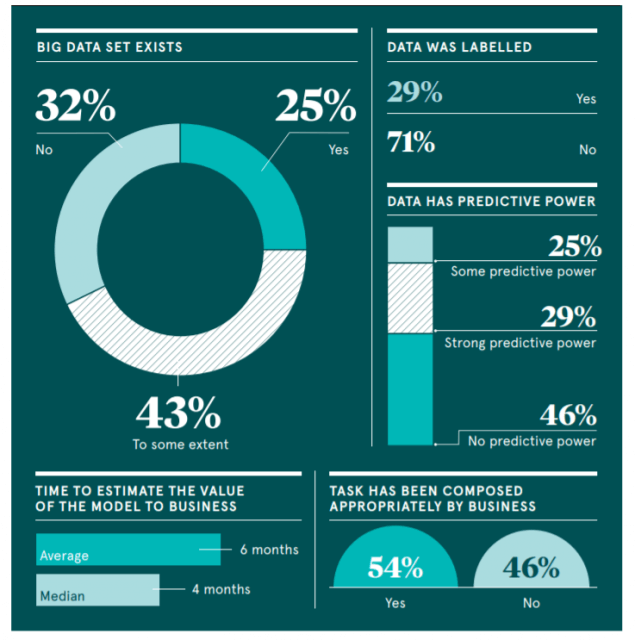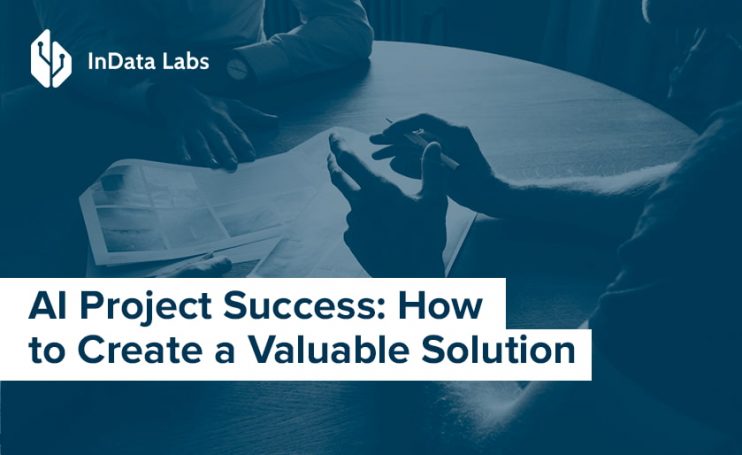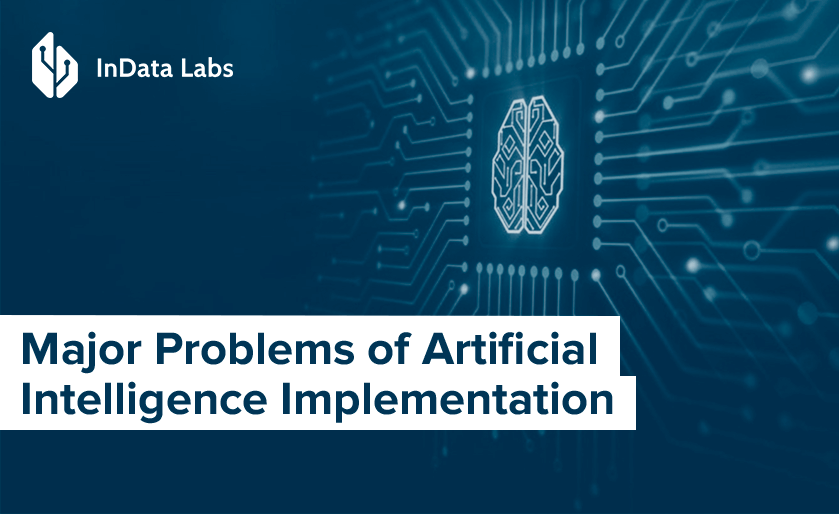Artificial intelligence (AI) is the core technology that disrupts today’s business reality. It comes as no surprise that the number of companies that have piloted AI and then expanded the use of intelligent systems is growing. According to Gartner, the total number of AI adopters across different industries has increased by 270% over the last 4 years. Share on X In many fields, such as logistics, finance, retail, automotive and assembly, AI solutions became a silver bullet to enhance and automate data-based processes.
Companies deploy AI to assist human employees in completing different business tasks. In the financial industry, the solutions are primarily used to automate service operations, facilitate risk management, and boost marketing and sales activities to stay ahead of competitors. In retail, AI raises the concept of personalization to a whole new level and optimizes supply chain management. Also, intelligent algorithms contribute a lot in the automation and robotization of assembly lines and manufacturing processes (the transformative power of AI was well discussed in the previous article from the InData Labs’ blog).
Non-trivial business goals and amazing fields of AI deployment make it more complicated for machine learning (ML) engineers to deliver compelling solutions. They need to take a deep dive into every client’s business and unique requirements to tailor a successful AI-driven custom system.
It Takes Full Immersion to Create a High-End Solution
AI solutions are poised to revolutionize various business fields. But many user-friendly systems are not as easy to employ as they seem at first glance. Among the major obstacles to business success with AI is the lack of understanding of a “black box” by a client and how and where to apply it.
There is an array of ways to apply AI to increase profit and maintain a competitive edge. However, many non-tech savvy business owners get lost in a sea of opportunities offered by state-of-the-art technologies. When they first turn to AI software firms, they rarely have an ideal plan on using data to enhance processes by introducing machine learning algorithms. They can have no historical data at all or have insufficient amounts of raw data.
The first step towards cooperation is to assist every client in gaining an understanding of what kind of AI application will be the most business-optimized for different AI project ideas. The next move is to abide by the chosen strategy based on the deep comprehension of a client’s business expectations.
Ilya Kirillov, CEO of InData Labs, comments:
“At InData Labs, we acknowledge the importance of all aspects of a client’s business to work in line with specific needs. AI solutions designed in close cooperation with a client can help improve a client’s business strategy and maximize business value.”
At InData Labs, cooperation with business owners starts with an overview of the business environment where a solution will be integrated to meet specific challenges. There are three most important aspects of understanding a client’s business: communication, useful data, and the right approach to using data.
- Continuous communication with a client can help get a full background of a client’s business and project goals. Clients can share hands-on knowledge of the sphere where they are going to implement AI.
The nature of a client’s business can be rather unusual. For instance, if a client is engaged in breeding racehorses, it will be challenging to tailor a solution knowing nothing about races and horses. InData Labs’ machine learning engineers had thoroughly studied the niche to grasp the essence before they moved on to designing a solution. As a result of close cooperation, the experts persuaded the client to choose a more efficient approach to achieve goals and use other types of data to succeed. Source: unsplash.com
Source: unsplash.com - Data science consulting is an essential prerequisite of AI project success. At an early stage of working with client’s datasets, data scientists check if there is enough historical data, control the quality and evaluate the usefulness of raw data, help gather more data if necessary, and verify labeled data, if any.
While working on a racehorse breeding business, InData Labs’ experts received, from the outset, large amounts of data from the client. The datasets included photos, race data, heart scans, and genetics. However, when engineers tried to use the provided data for building features, it yielded poor results. The data was lack of predictive power, whereas the client needed a reliable predictive model to pick the most promising racehorses and avoid unnecessary expenses. - Not all the data has predictive power. It is vital to get through to a business owner as early as possible. Otherwise, time- and resource-consuming activities may end in the cool but useless output. Discussing with a client all aspects of the further application of AI creates a clear understanding of the goals of a project and allows collecting meaningful data. The chart below demonstrates the actual state of things while working with clients’ business data.
 Source: Raconteur.net
Source: Raconteur.net
- Only 25% of clients have ready-for-use datasets when reaching out to an AI software provider
- 32% expect some magic but cannot provide datasets
- 71% of clients’ data need to be labeled by data science experts
- Despite clients’ expectations, only 29% of data has predictive power, and half of the data has not
- It takes an average of 6 months for data science experts to estimate the value of a would-be solution for business
- A bit more than 50% of clients can clearly define the tasks based on the specifics of their business
When InData Labs was working with data on racehorses, the team faced the problem of changing goals. The initial client’s data had little to no predictive power, and the engineering team was unable to use the data. Therefore, the team offered another method of data gathering and spent about 70% of time working on fine-tuning the method and ensuring that the collected data will be of the required quality.
Final Point
The number of spheres of implementing AI is growing, but the number of successful cases of AI adoption is lagging behind the overall increase. The hype around AI encourages business owners to seek for solutions to augment a variety of business processes. However, not many companies have a well-defined data strategy in place.
An experienced provider of machine learning consulting services can alleviate difficulties in drawing up an AI adoption plan and defining the functionalities of a business-focused solution. After that, data science experts can help a client streamline the process of collecting data by finding best-fit data gathering methods. In the case of insufficient data, the client will be able to gather and provide more useful data to allow passing on to the next stage of a project. By opting for a business-oriented approach, an AI solution provider can guarantee project success.
Start Your Next AI Project with InData Labs
Have a project in mind but need some help implementing it? Drop us a line at info@indatalabs.com, we’d love to discuss how we can work with you.



